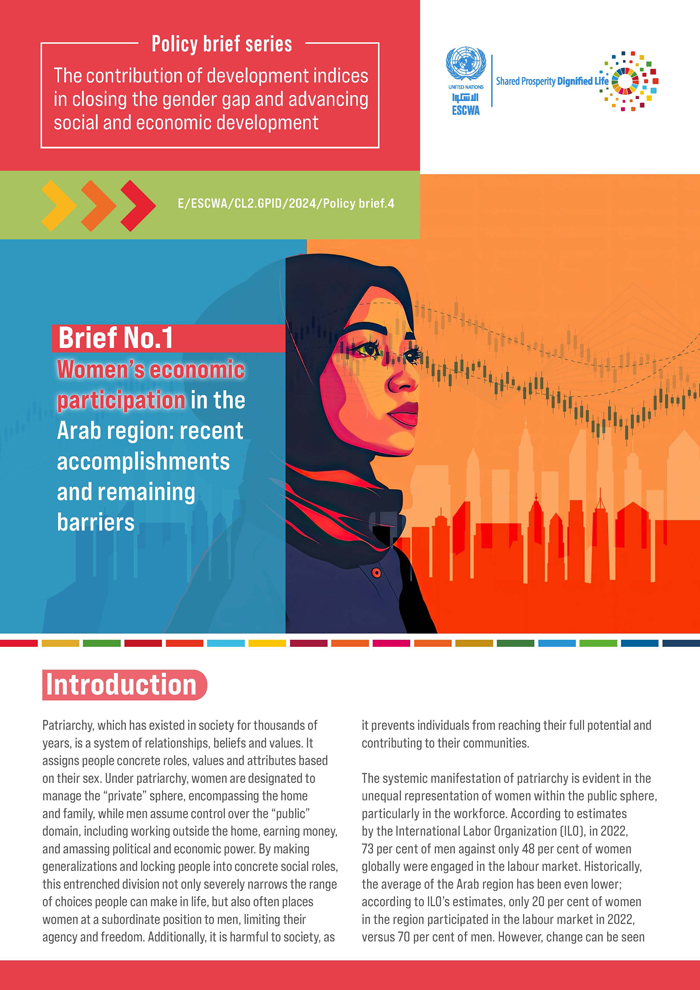
Background
Women's economic empowerment in the Arab region remains constrained by multifaceted challenges despite progress in legislative and policy reforms over the past decades. Many Arab countries have implemented legal changes to expand women's access to the labour market, ensure equal pay, and prevent workplace discrimination. Notable advancements have been made to enable women to work in previously restricted sectors and promote entrepreneurship through training programmes, financial incentives and policy support. These initiatives underscore the recognition of women as vital contributors to economic growth and sustainable development.
Nevertheless, the region faces significant obstacles to women’s economic empowerment. Cultural norms and deeply rooted societal biases continue to limit women’s ability to fully engage in economic activities. Women often encounter restricted access to financial resources, property ownership and professional networks. Additionally, gender gaps in labour force participation have persisted, with female participation rates in some Arab countries among the lowest globally. Unemployment rates for women remain disproportionately high, particularly in conflict-affected countries, where socio-political instability further exacerbates vulnerabilities. Women also bear the brunt of unpaid care work, which limits their availability for formal employment and economic opportunities.
To overcome these challenges, comprehensive and coordinated actions are essential. Governments must prioritize policies that dismantle cultural barriers, enforce gender-equitable labour laws and address structural inequalities. Investments in education, skill-building and financial inclusion for women, alongside efforts to redistribute unpaid care work and provide accessible childcare, are critical to fostering an enabling environment. Expanding women's leadership opportunities and ensuring their participation in decision-making processes across all sectors are equally pivotal for achieving gender-inclusive economic growth in the Arab region.
Our approach
ESCWA supports its member States in advancing women's economic empowerment and addressing gender-based economic disparities through the following actions:
1. Conducting in-depth analyses at both regional and national levels to identify the key challenges hindering women's economic participation, and collaborating with member States to develop legislative, policy and programmatic solutions to overcome these obstacles.
2. Promoting women’s entrepreneurship and broader economic integration by preparing foundational documents and resources that facilitate and support their active participation in the economy.
Our partners
ESCWA collaborates with a wide range of partners to achieve its goals. These include sister United Nations organizations such as the International Labour Organization (ILO), the United Nations Development Programme (UNDP), the United Nations Population Fund (UNFPA), and UN-Women, as well as national women's machineries, parliamentarians, government institutions, and non-governmental organizations advocating for women’s rights.
Our activities
ESCWA undertakes extensive work to support women’s economic empowerment. This includes producing studies on critical issues such as unpaid care work, financial inclusion, women’s leadership in decision-making, access to resources, and entrepreneurship. Additionally, ESCWA organizes regional consultations and expert group meetings to translate research into actionable outcomes, leveraging regional and international best practices. Advocacy tools are also developed to emphasize the transformative impact of women’s economic empowerment on societies, households and economies at large.





